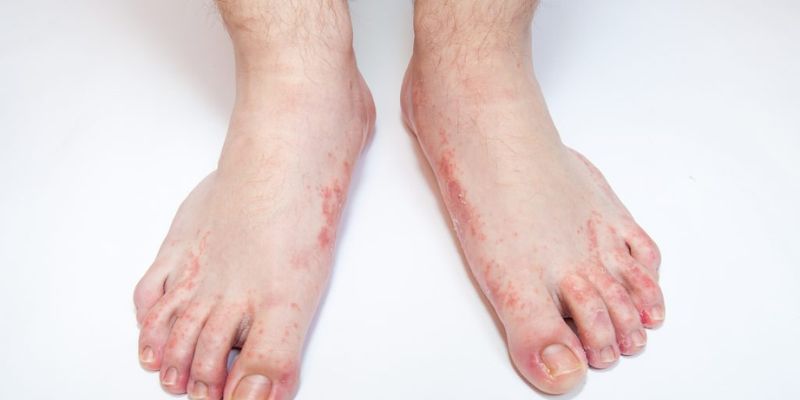People are wondering whether vitamin D pills might prevent autoimmune illnesses. Maybe you've heard of vitamin D. The "sunshine vitamin" is produced by our skin under sunlight. It supports your immune system, bones, and inflammation. Recently, scientists have begun Sherlock Holmes-ing how vitamin D supplementation may affect autoimmune illness. This essay unravels vitamin D and inflammatory riddles.
Let's discuss autoimmune illnesses. These complicated illnesses cause your immune system to target your bodily components. This causes chronic inflammation and many unpleasant symptoms. Consider rheumatoid arthritis, MS, lupus, or type 1 diabetes. They may disrupt lives. Determining whether vitamin D supplements will assist is more crucial than ever because autoimmune disorders are increasing.

Understanding Autoimmune Diseases:
Various autoimmune diseases have different symptoms and target tissues. Management is complex due to their chronicity and lack of cure. In autoimmune illnesses, autoantibodies target and destroy healthy cells and tissues, causing inflammation and other problems. Developing effective autoimmune disease preventive and control techniques requires understanding their processes.
Genetics, environmental causes, and immune system dysfunction complicate autoimmune illnesses. Genetic predisposition, infections, and hormonal changes may cause autoimmune diseases. Autoimmune illnesses have many symptoms and disease courses, making diagnosis and therapy difficult.
The Science of Vitamin D and Immunity:
Vitamin D has several immunological benefits. Immunological cells and immunological response depend on it. Vitamin D affects immune system activation, expansion, and cytokine production through receptors on diverse immune cells. Vitamin D modulates immune system responses.
Studies relate vitamin D deficiency to autoimmune diseases. Vitamin D deficiency may cause immune system dysregulation and autoantibody production. Many autoimmune illnesses induce chronic inflammation, which vitamin D insufficiency may cause.
The Impact of Vitamin D Supplementation:
Studies on vitamin D supplementation and autoimmune risk factors have shown promise. Vitamin D supplementation may reduce autoimmune disease risk. Dosage, duration, and baseline vitamin D levels affect supplement efficacy.
Vitamin D supplementation dosage and duration matter. According to research, maintaining appropriate vitamin D levels may reduce autoimmune disease risk. Age, skin type, and location might affect the optimal dose. Vitamin D administration may need to be constant over time for considerable risk reduction.
Vitamin D supplementation may reduce autoimmune disease risk, but large dosages may have adverse effects. Working with doctors to decide the dose and maintain vitamin D levels is crucial.

Practical Implications for Autoimmune Disease Prevention:
As scientists study the effect of vitamin D supplementation in lowering autoimmune illness risk, practical consequences arise for at-risk persons. Individual requirements and base vitamin D levels should guide vitamin D supplementation recommendations. Vitamin D depends on age, skin tone, region, and lifestyle.
Vitamin D supplementation may assist at-risk groups, including those with autoimmune disease families or restricted sun exposure. To guarantee vitamin D dose and monitoring, healthcare practitioners must provide personalized counseling. A healthy diet, frequent exercise, and stress management are part of the holistic immune health approach.
Vitamin D's Role in Immune Regulation:
Vitamin D's immune system modulation makes it an attractive possibility for lowering autoimmune disease risk. Vitamin D regulates the immune system's innate and adaptive functions, maintaining immunological homeostasis. It promotes immunological tolerance and reduces inflammation. Immune imbalance and inflammation are crucial in autoimmune disorders, making these tasks necessary.
Vitamin D affects immunological cells in several ways. It reduces inflammation by inhibiting pro-inflammatory immune cell multiplication and activation. Additionally, vitamin D stimulates regulatory immune system cells that limit excessive immunological activity and preserve self-tolerance. This dual immune modulation makes vitamin D a viable autoimmune disease prevention strategy.
The Influence of Genetic and Environmental Factors:
Genetic predisposition or environmental factors interact to cause autoimmune disorders. Vitamin D may affect the immune system, but it's just one part. Genetics, particularly a family history, may significantly increase the risk of autoimmune illnesses. Environmental causes, including illnesses or diets, may increase autoimmune risk in genetically susceptible people.
Preventative measures need to understand genetic-environmental interactions. Vitamin D supplements may help, but they should be part of a complete program that addresses other variables. Genetic counseling and frequent monitoring may help identify early autoimmunity in those with a family past of autoimmune illnesses.
Due to hereditary and environmental variables, personalised risk reduction is needed for autoimmune illnesses. It emphasizes the need for ongoing study into autoimmunity's complex processes. Vitamin D supplementation and other protective measures may aid this comprehensive effort.
The Need for Personalized Supplementation:
Vitamin D supplementation may reduce autoimmune disease risk, but it's not a cure-all. Vitamin D intake must be individualized to attain and maintain optimum levels. Location, exposure to the sun, age, skin type, food, and health issues all affect the supplementing approach.
In areas with little sun, vitamin D production is inhibited, making supplementation more important. People living near the equator, where sun exposure is higher, may need more. Due to decreased skin production and absorption, elderly persons need larger vitamin D dosages. Darker skin produces less vitamin D from sunshine. These considerations demonstrate the need for customized supplements.
The Role of Healthcare Professionals:
Primary care doctors and endocrinologists should help choose and manage vitamin D supplementation. Regular checkups and blood testing provide adequate vitamin D levels, avoiding hazardous highs. Individual traits, risk factors, and health problems may help doctors choose supplements technique and amount.
Additionally, healthcare practitioners may help inform consumers about vitamin D supplementation's pros and cons. Avoid self-prescribing large vitamin D dosages since they might have side effects. Individual and healthcare provider collaboration may safely and successfully incorporate vitamin D supplementation into autoimmune disease preventive regimens.
Vitamin D supplementation to lower autoimmune disease risk is a promising research subject. Supplementation is individualized based on location, maturity, and skin type, requiring expert assistance. To optimize vitamin D levels, healthcare professionals assist patients in creating and tracking personalized supplementation plans. Vitamin D's ability to prevent autoimmune diseases gives promise for natural and holistic immune health protection as the study progresses.
Conclusion:
In conclusion, vitamin D supplementation and autoimmune disease risk reduction are intriguing fields of study with significant public health implications. Autoimmune illnesses harm people and medical facilities, making vitamin D supplementation research crucial.
Vitamin D is vital for immune system regulation, according to scientists. Maintaining vitamin D levels is essential since low levels increase the risk of autoimmune disorders. Vitamin D supplements may reduce risk, but dose, duration, and individual characteristics must be considered.
Empowering people to make vitamin D supplementation decisions alongside healthcare experts may reduce the risk of autoimmune illnesses. As this study grows, it gives promise for a future when vitamin D may help prevent and control autoimmune diseases.












